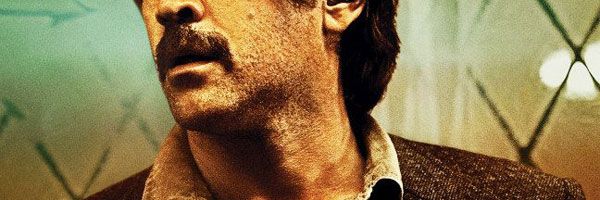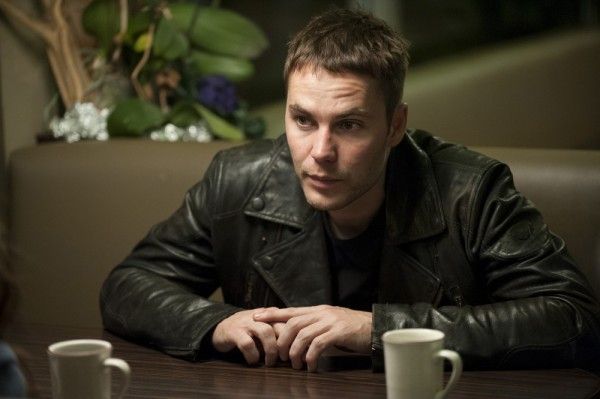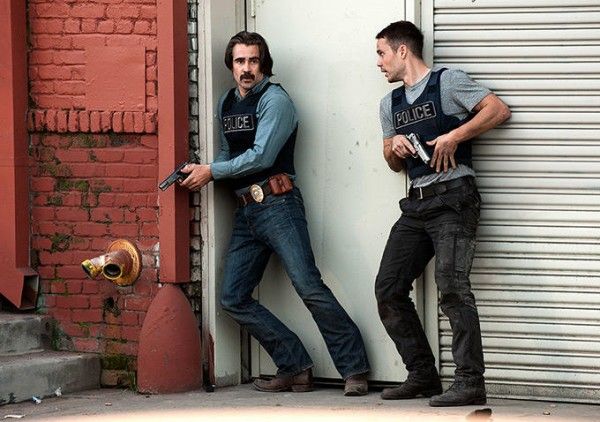Recovering from the utter madness of Comic-Con 2015, which this writer just returned to some 11 hours ago, made the uptick in potent, rousing moments in True Detective Season 2’s fourth episode all the more disorienting. “Down Will Come” ends with the sort of visceral, bloody tragedy that actually matches Season 2’s lugubrious tone, whereas the rest of the season thus far (including a large amount of this episode) has simply felt portentous. The attempted taking of Ledo Amarilla (Cesar Garcia), the first strong suspect in the murder of Vinci’s city manager, ends with dozens of casualties, as well as the death of Detective Dixon (W. Earl Brown), one of this season’s more intriguing characters; that’s not even mentioning that the extended shoot-out ends with the shooting of Amarilla himself. Credit the talented television director Jeremy Podeswa, a veteran of Game of Thrones and Boardwalk Empire, for giving the last 15 minutes or so of the episode a thrilling sense of constant action and danger, which recalls nothing less than the bank-heist shootout from Michael Mann’s Heat in its immediacy.
Of course, the entire second season has recalled something like a Mann-helmed Chinatown remake, though written in a manner, by creator Nic Pizzolatto and, that is reminiscent of the tortured machismo of latter-day Frank Miller. And, for the most part, that continues on in “Down Will Come,” which continues to build up elements of a larger plot with increasingly diminished scenes or sequences that feel lively and in the moment. This begins with Frank’s continuing turn back to a brutal, blithely manipulative crime boss, rather than the legitimate kingpin that he envisioned himself becoming by putting his money into plans for a more extensive subway system. This made for some mighty frivolous and uninteresting scenes of shakedowns that were meant to be frightening, imposing, or enraging, every one of which seemed to reiterate the gripping yet vacuous atmospheric style that Justin Lin saddled Season 2 with.
There was a similar feeling of going about the motions with Bezzerides’ suspension, following a complaint filed by a former lover and subordinate, and, to a lesser extent, Woodrugh’s drunken one-night stand and subsequent engagement to his knocked-up girlfriend. Admittedly, Kitsch proved strikingly convincing in his character’s mounting panic and nerviness, but the character’s trajectory continues to be predictably grim and overtly plotted, shrouding his more complex, wild nature in a veil of brooding normalcy. Bezzerides’ storyline continues to be the most consistently fascinating, helped enormously by the second appearance of the great David Morse as her father, who is questioned by his daughter and Velcoro in one of the episode’s most engaging scenes. In that scene, the familial bloodlines and roots of Vinci’s corruption begin to stir to vehement life, ever so subtly. However, following this moment, and up until the final action sequence, the insidious menace of governmental corruption remains dormant in the episode, despite being a major topic of conversation. Still, these two moments are so exhilarating and thoughtful, especially in contrast to anything in “Maybe Tomorrow,” that, for the first time so far this season, the first rumblings of something truly forceful and furious to come can be felt.
★★★ Good — Proceed with cautious optimism



